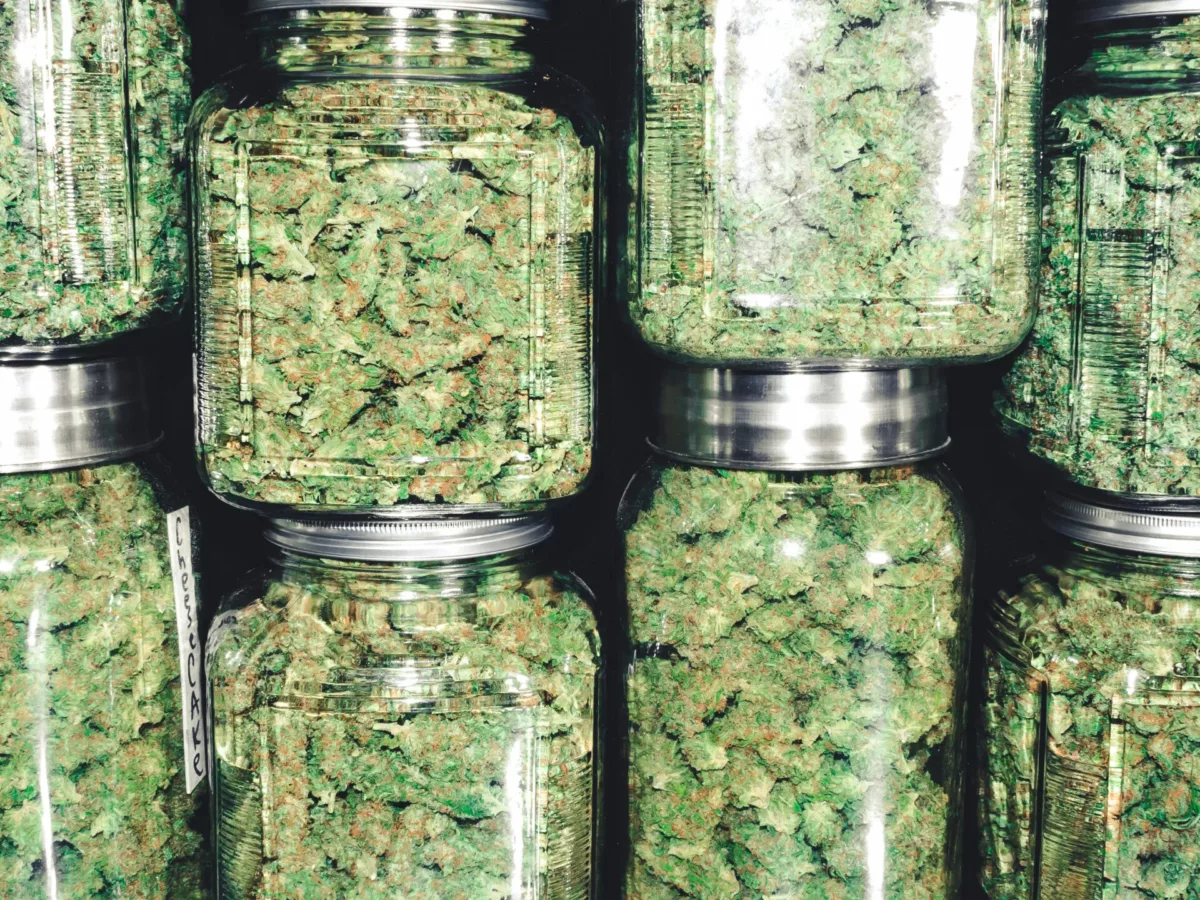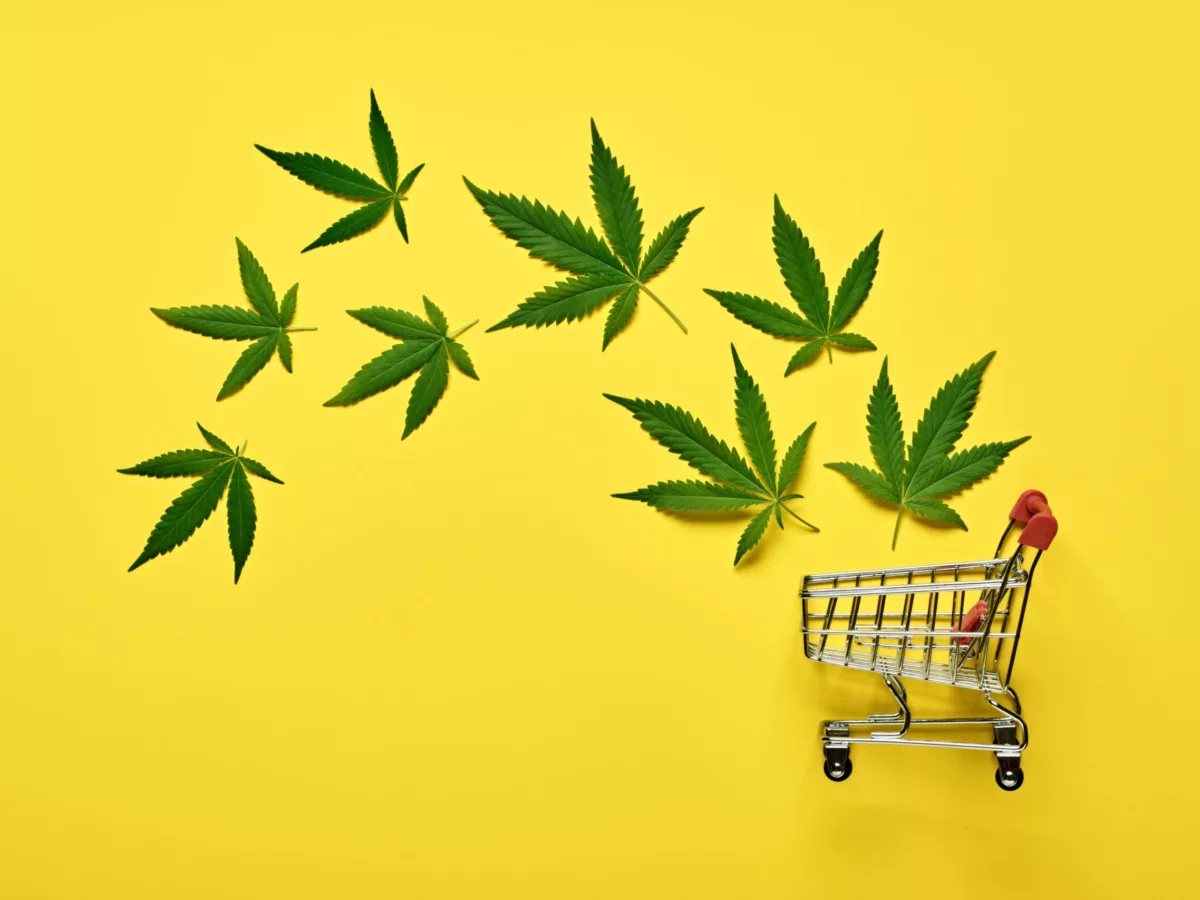Crowds were greeted with an uplifting herbal aroma on Saturday as they approached D.C.’s RFK Stadium for the fifth annual National Cannabis Festival.
But just in case people didn’t recognize the smell, there was a 20-foot-long inflatable sign by the entrance that read “CANNABIS” in giant red-and-white letters.
Consumers, advocates, and industry professionals have congregated at the festival since 2016 to celebrate a new chapter in weed history — one marked by legalization, innovation, and recognition for the healing virtues of a plant that has long been appreciated by underground culture while shunned by mainstream society.
This year, festival-goers had many attractions to choose from, including an all-day concert, a massive cannabis exhibition, a series of panels on pot, and speeches from an array of legislators, activists and physicians.
Last year, the event was cancelled due to coronavirus restrictions, but organizers this year were prepared: In order to enter the stadium, guests had to provide proof of vaccination or a negative test result for COVID-19.
Beyond the huge “CANNABIS” sign at the entrance, more than 100 businesses sold pot products and paraphernalia at small booths alongside groups advocating for cannabis reform.
But before getting to the booths, people were corralled through the “munchies zone,” where food vendors— mostly local and Black-owned — displayed menus stacked to satisfy even the wildest weed-induced craving.
The long list of snack options included fried chicken, funnel cakes, fried oreos, jerk chicken, cheese fries, a variety of lemonade flavors, fried watermelon, and so much more.
By the main stage, a mellowed-out crowd scattered out on picnic blankets and lawn chairs to enjoy a packed line-up of musical performances and keynote speeches.
It was a quintessentially hot and humid day in D.C., but the crowd picked up its energy for headline performances from rap duo Method Man and Redman, followed by Yung Baby Tate who subbed in after a last-minute cancellation by Young M.A..
In between acts, pro-cannabis lawmakers took the stage, including Maryland Del. Jazz Lewis and D.C. Councilmembers Kenyan McDuffie and Brooke Pinto.
“I think it is absolutely insane for people to make millions of dollars for something that people have criminal convictions [for] and can’t get any more employment,” said Lewis to a predominantly Black crowd.
Earlier this year, Lewis introduced an equity-focused legalization bill to Maryland’s House of Delegates.
“We are going to legalize cannabis and tax it and we need to make sure the lion’s share of those proceeds go to our communities,” Lewis said.
The rest of the festival played out in a sea of white exhibition tents, made up largely of cannabis businesses selling pot products and paraphernalia.
Medical cannabis dispensaries like Maryland’s Culta or D.C.’s Takoma Wellness Center gave out swag, but only to cardholding patients authorized to visit their booths.
Meanwhile, unlicensed cannabis vendors from D.C.’s gray market “gifted” a full range of cannabis products, largely unconcerned with any legal questions. (Recreational cannabis sales are technically illegal in D.C., but many unlicensed businesses get away with selling weed by exploiting a “gifting” loophole in local law.)
At one stand, people huddled around small jars of cannabis flower while they listened to a grower explain the happy, cerebral effects of his “Blue Dream Sherbert” strain. Nearby, a woman explained how to eat the perfect amount of cannabis-infused gummies.
Many of the businesses at the festival were minority-run, though a majority of licensed cannabis operators in the D.C. region are owned by white, multi-state operators.
One exhibition showcased a photo series by Tamara Netzel called “Cruel Consequences: Portraits of Misguided Law,” that depicts people harmed by cannabis prohibition. Below each portrait was a QR code linking to each person’s story.
As people wandered through the festival, freely sampling cannabis products while listening to music, it was difficult not to consider the strange irony in the nation’s capital hosting a weed festival while the drug remains federally prohibited.
At one point, a woman casually pulled out her lighter to spark up a fresh joint near a sign that read: “40,000 are still incarcerated for cannabis in the United States.”
She passed the joint to a friend, and they walked towards the munchies zone.









